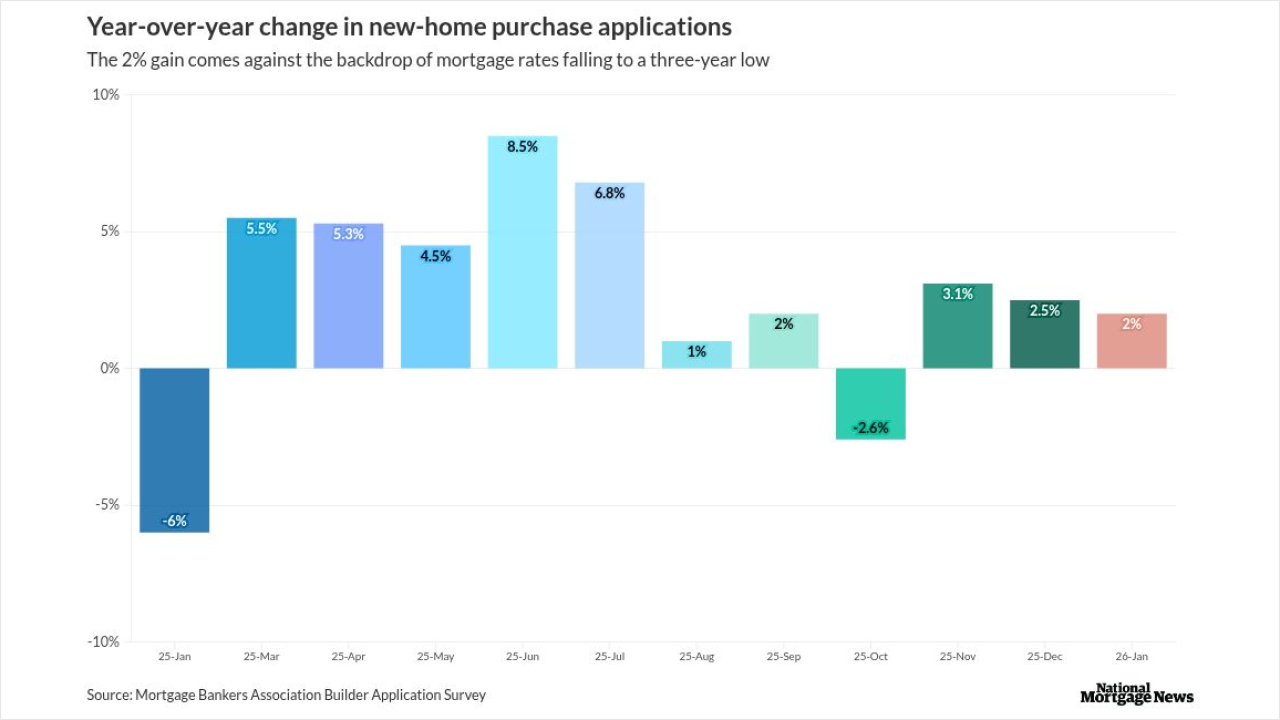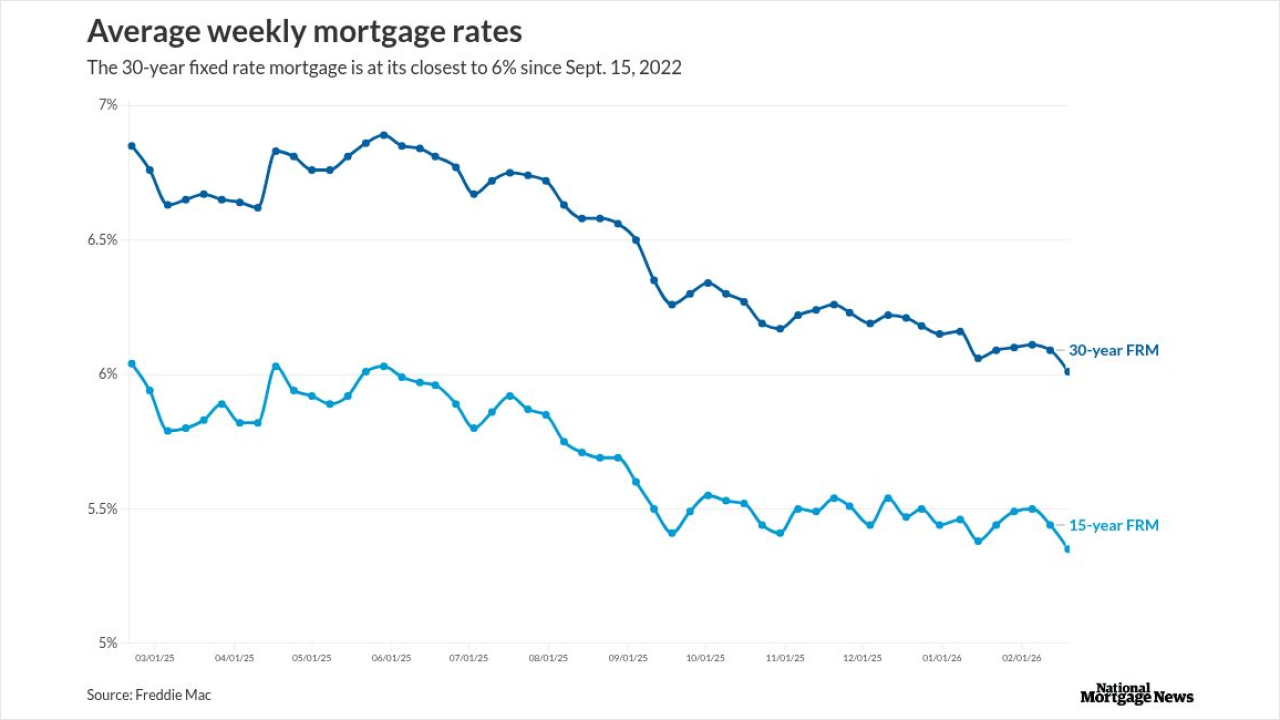Mortgages rebounded last week following the weaker than expected non-farm payrolls report. Real money buying emerged, along with continued support from overseas banks, to propel prices higher and spreads tighter, particularly lower coupons. Lower coupons also benefited from the November prepayment reports, which showed continued fast speeds for discount coupons. Higher coupons, meanwhile, were hit following the report as speeds showed slight gains versus expected declines.
Buying in all MBS began to falter on Wednesday, however, when Treasurys rallied even further as a result of energy and dollar action, corporate and CMBS hedge unwinds, and a favorable five-year Treasury auction. Hedge funds and fast money started taking profits, which continued into Thursday's trading session.
Originator supply remained around its average $1 billion per day level. Concern was growing on Thursday, however, that originators, along with servicers, would have to start selling if rates held at lower levels as they are hedged for higher rates.
Over the week ending Thursday, Dec. 9, spreads on 30-year Fannie Mae 4.5s and 5s were five to six basis points tighter; 5.5s and 6s were four basis points better; and 6.5s were three basis points wider. In 15s, 4s and 4.5s were firmer by three and one basis point, respectively; 5s and 5.5s were two and three basis points wider.
MBS outlook
JPMorgan Securities appeared to be the first firm out with their 2005 outlook for the mortgage market (See outlook piece on next page). Overall, it's a favorable one. While researchers don't expect it to be as spectacular as this year, they do expect the sector will benefit from continued overseas support, further declines in volatility, steady domestic demand, and virtually no net supply. Analysts add that "a year from now we would not be surprised to see nominal MBS spreads another 10 to 15 basis points tighter." They expect that discount speeds will remain high in 2005 and anticipate that investors will need to increase their exposure to specified pools as a strategy to outperform the MBS Index because of an expected poor roll environment as rates increase.
Regarding foreign bank support in MBS, Bear Stearns addressed the topic in their recent research, specifically regarding the Chinese Central Bank. Researchers suggest that mortgage spreads could tighten further on the Chinese Bank's interest to improve returns on its dollar portfolio. Analysts also state that with the US buying more from China than it sells, China is gathering a growing pile of dollars. While Treasury issuance is picking up, Bear believes, "MBS still adds spread for a portfolio that constitutes an important part of China's national savings."
Purchase activity gains, refis hold steady
Mortgage application activity was slightly more active than expected for the week ending Dec. 3. The Mortgage Bankers Association reported last week that the seasonally adjusted Purchase Index rose 6.6% to 491, while the Refinance Index declined just 1% to 1891. Unadjusted, purchases jumped 32% and refinancings surged 41%.
Mortgage rates declined for the week ending Dec. 10 - not surprising considering the 28 basis point rally in the 10-year yield since the release of non-farm payrolls. The 30-year fixed rate mortgage rate fell 10 basis points to 5.71%; the 15-year fixed rate mortgage rate was down nine basis points to 5.14%; and the one-year ARM rate slipped four basis points to 4.15%, according to Freddie Mac.
Currently, the outlook for this week's mortgage application report is for the Refinance Index to hover around the 2000 area.
Discount speeds hold fast in November
Prepayment speeds were slightly faster than consensus expectations, but nothing significant. In general, discount coupons continue to prepay fast, while premiums continue to show limited response to the current level of mortgage rates. Bear points out that since July, mortgages rates have fallen 60 basis points, but prepayments on 2002 6s and 6.5s are up less than 6 CPR and 7s are down 2 CPR.
Within the conventional realm, Freddie Mac Golds showed larger percentage increases; however, speeds remain below their Fannie Mae counterparts. Meanwhile, Ginnie Maes continue to prepay faster than conventionals due to opportunities for many borrowers to refinance into the more favorable conventional loan.
The prepayment outlook for December is for speeds to hold flat to slightly higher as a result of a 2.5-day increase in the day-count. Contributions from mortgage rates and refinancings are predicted to be limited as they have held relatively flat on average, as the table on the page illustrates. Looking ahead to January, speeds are expected to decline around 5% to 10%.
Copyright 2004 Thomson Media Inc. All Rights Reserved.
http://www.thomsonmedia.com http://www.asreport.com





